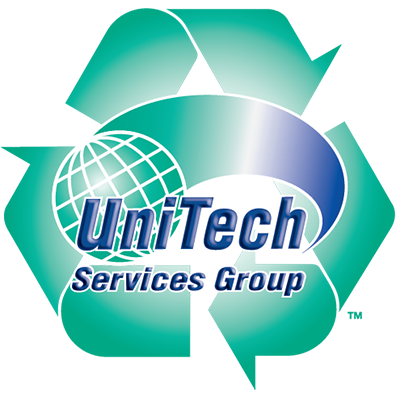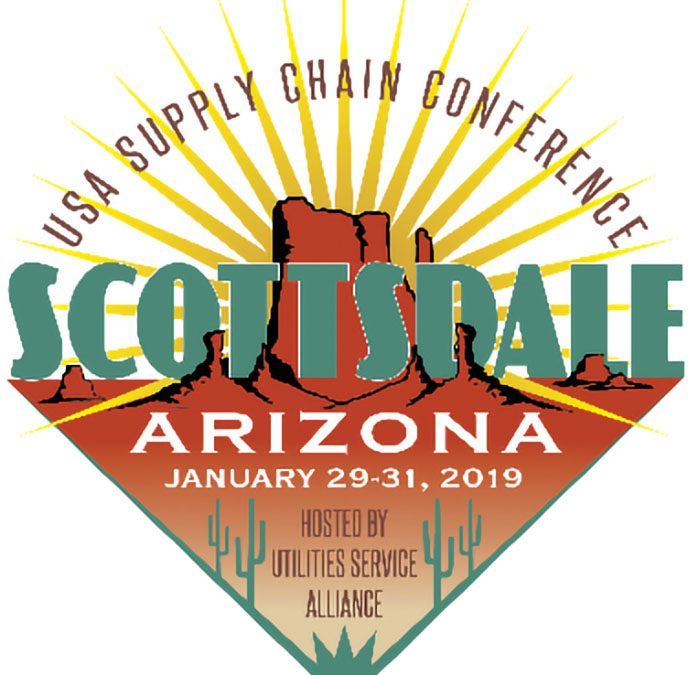The UniTech team kicked off the early months of 2019 with two key presentations in Arizona, focused on cost-preventative customer behaviors with substantial positive impacts on nuclear plant operating costs.
USA Supply Chain Winter Conference
First up was a trip to Scottsdale for the Utilities Services Alliance (USA) Supply Chain Winter Conference January 28-30. Technical Accounts Manager – Dick Downard, and Director of Sales and Marketing – Gregg Johnstone, presented recent findings about the ways in which customers are utilizing UniTech’s Mobile Supply Store and RF tagging to reduce nuclear plant operating costs.
The Mobile Supply Store acts as “just-in-time inventory” — a customized semi-trailer stocked with a complete line of health physics supplies, industrial safety apparel, equipment, fall protection, first-aid kits, lockout systems, and consumables. The Mobile Supply Store offers the flexibility to deliver supplies to a job site to support special short-term projects (such as outages), or deliver to a facility consistently with scheduled restocking shipments, as a long-term solution. Ultimately, the Mobile Supply Store provides a significant cost savings advantage over warehouse charges and handling fees.
Customers have also been achieving cost savings through radio frequency identification (RFID) tagging of high-value inventory items, such as respirators. RFID tagging prevents items from being removed from the plant in Dry Active Waste (DAW) sorting. This works in tandem with a digital inventory system to eliminate human error in inventory management and tracking. The end result is less time spent searching, and significant loss prevention savings. RFID tagging is useful in eliminating the human error of logging vacuums and HEPA vacuums, traditionally completed through paper logs.
During its first outage employing the RF tagging program, LaSalle County Generating Station recovered 11 blowers and 4 vacuums, inventory worth $8,000.
 Waste Management Symposia
Waste Management Symposia
In Phoenix at the 45th annual Waste Management Symposia (March 3-7), Director of Canadian Operations – Kent Anderson, participated as part of an expert panel focused on Canadian nuclear plant waste management, after submitting a paper on the topic of “Rad Waste Cost/Volume Reduction Using New Monitoring/Decon Techniques, Launderable Items & Recycling.”
Anderson contributed panel expertise on how UniTech and Canadian customers have collaborated to reduce waste volume and cost, while increasing recycling and reuse of materials.
Improved radiation monitoring and decontamination techniques over the past decade have been difference-makers. In the past 10 years, 2,700 metric tons of scaffolding and tooling have been released for unrestricted use, returning back to Canadian utilities, or recycled as non-radioactive scrap metal.
A major countrywide shift towards reusable (launderable) protective clothing items in the past decade has reduced the cost per use by more than 50 percent, reduced wasteful use of plastic wraps and eliminated thousands of cubic meters of Canadian nuclear plant waste.
The sheer impact of this shift was apparent when two Canadian reactors went through a large-scale midcycle refurbishment project, which occurred between March 2006 and November 2010. The operating utility avoided 3,581 cubic meters of radioactive waste by using launderable Radiological Personal Protective Equipment (RPPE), leading to a waste savings worth over $15 million, and an additional cost avoidance of over $3 million on direct purchase of single-use disposable RPPE.
In his paper, Anderson concluded that nuclear plants can increase volume of reusable and recyclable materials by employing the following tactics:
- A proven combination of advanced, cost-effective, accurate, reliable, and precise monitoring techniques and technologies, which reduce or eliminate risks associated with inefficient, sub-optimal, manual techniques
- New, improved decontamination processes, applicable to a wide range of items
- Prevention of item decontamination via the use of launderable and multi-use protective strategies
- A comprehensive QA/QC methodology that captures necessary information and process data for fully-packaged regulatory compliance documentation

